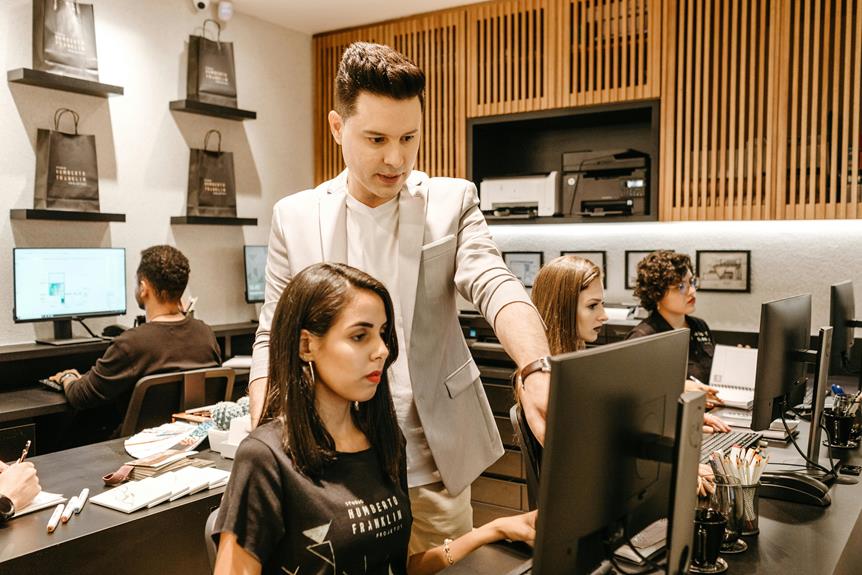The 'How-To Guide: Restaurant Manager Role Breakdown' offers a comprehensive overview of the pivotal responsibilities and essential skills required for excelling in the role of a restaurant manager. This guide is tailored for individuals dedicated to serving others within the hospitality industry. It delves into critical areas such as customer service, vendor and human resource management, budgeting, operational optimization, performance evaluation, and ensuring adherence to health and safety standards, including COVID-19 safety measures. Additionally, it provides valuable insights into career advancement opportunities, job search strategies, and frequently asked questions, making it an indispensable resource for aspiring and seasoned restaurant managers alike.
Key Responsibilities
When assuming the role of a restaurant manager, it is essential to understand the key responsibilities that encompass overseeing the operations and staff to ensure excellent customer service and efficient business performance. The job duties of a restaurant manager are diverse and demanding. They include managing the staff, ensuring customer service standards are met, overseeing day-to-day operations, maintaining safety and cleanliness, and optimizing business performance. This role involves a myriad of responsibilities, such as coordinating activities between the front and back house to guarantee a superior customer experience, identifying reliable vendors for high-quality raw materials, performing HR functions including hiring, training, and evaluating employees, deciding on effective marketing platforms and strategies, and collaborating with the executive chef to plan a menu that aligns with the target audience's preferences. Overall, the restaurant manager plays a pivotal role in the smooth and successful functioning of the establishment.
Essential Skills
Developing strong leadership and communication skills is crucial for a restaurant manager to effectively oversee staff and maintain exceptional customer service standards. Essential skills for a restaurant manager include:
- Food and Beverage Service: Understanding of food and beverage service to ensure quality standards are met.
- Health and Safety: Knowledge of health and safety regulations to create a safe environment for both staff and customers.
- Management Skills: Ability to manage front and back of house operations efficiently.
- Hiring Process: Skills in the hiring process to recruit and retain a competent and motivated team.
These skills are vital for a restaurant manager to uphold the highest standards of customer service, manage the restaurant operation, and fulfill various managerial responsibilities.
Daily Tasks
As a restaurant manager, overseeing the daily operations and ensuring seamless customer service is an essential aspect of the role. The duties of a restaurant manager include managing the day-to-day operations of the restaurant, both front of house and back of the house. Responsibilities include overseeing the hiring, training, and evaluating staff members to ensure optimal performance. This involves coordinating activities between the front and back house to provide a superior customer experience. Additionally, identifying vendors with the best services and raw materials is crucial for maintaining high-quality offerings. Daily tasks also encompass deciding on marketing platforms and strategies to attract and retain customers. Consulting with the executive chef to plan the menu based on the target audience's food choices is another vital aspect of the manager's duties and responsibilities.
Operational Management
In overseeing operational management, the restaurant manager must ensure efficient coordination between front and back house staff to maintain a seamless customer experience. This includes managing staff, addressing customer complaints, and optimizing the dining experience. The following are key responsibilities and strategies for effective operational management:
- Efficiently schedule front and back house staff to meet customer demand
- Implement quality control measures for food and service
- Utilize management software to streamline operations and enhance productivity
- Address customer complaints promptly to ensure customer satisfaction
Performance Evaluation
To effectively assess and improve employee performance, the restaurant manager must conduct thorough and objective performance evaluations. In the hospitality management and food service industry, performance evaluations are crucial for ensuring high-quality customer service and efficient operations. The restaurant manager's duties include setting clear performance expectations, providing regular feedback, and identifying areas for improvement. These evaluations also help in staff management by recognizing top performers and addressing any underperformance. By conducting performance evaluations, the restaurant manager can support the team in delivering exceptional service and contribute to the overall success of the restaurant. Additionally, performance evaluations enable the general manager to make informed decisions regarding training, task assignments, and recognizing employee contributions, ultimately leading to improved business performance and customer satisfaction in the restaurant industry.






